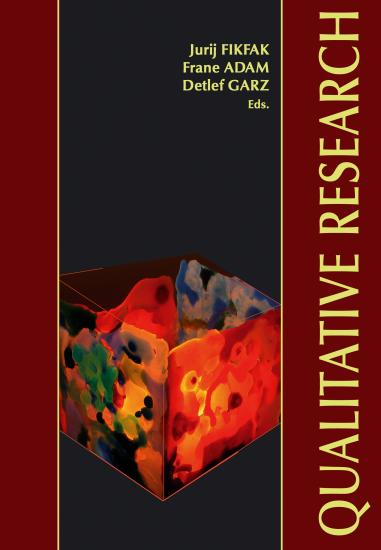
Kvalitativno raziskovanje. Različne perspektive – nastajajoče težnje.
Edited by:
Jurij Fikfak
Year:
2004
The instruments of qualitative methodology are certainly one of the 20th century’s greatest achievements among the different research methods in the humanities and social sciences, especially among those that deal with the discourse and world view of the other – the informant, his or her verbal, visual and other messages. In this period several important reflections on the forms and limits of research practice took place: reflections on the informant and the images and theories of the world with which he or she lives and co-creates his or her life; on the ways and means of recording and translating statements or field information into a language that is understandable to academic circles and the interested public; and last but not least, reflections on the researcher’s world view with and through which he or she interprets and attempts to understand the culture of the other.
Some of these issues are discussed in this book on qualitative research: epistemological questions by Frane Adam, Darka Podmenik, Will C. van den Hoonaard, and Reinhard Sieder; the role of the researcher and his or her “object” is problematized by Tatiana Bajuk Senčar, Jurij Fikfak, and R. Danielle Egan; Ulrich Oevermann, Axel Fehlhaber, and Detlef Garz discuss the latent structures of meaning and the objective semantic structures of expressive configurations within the objective hermeneutics approach; grounded theory approach is presented by Kaja Kazmierska, Blaž Mesec, and Vanja Huzjan; Susanne Friese reviews the characteristics of the current programs for computer-aided qualitative analysis; Josef Zelger presents his program Gabek Winrelan. The work concludes with a paper on ethical questions by Will C. van den Hoonaard.
-
Edited by
Other authors
collaborators
individual contributions
-
Publishing House:
Založba ZRC
-
Co-publishers
Institute of Slovenian Ethnology
Fakulteta za socialno delo – Univerza v Ljubljani
Pädagogisches Institut – Johann Gutenberg Universität Mainz
Politehnika – Nova Gorica
-
ISBN
961-6500-58-9
-
Year
2004
Language(s)
-
Specifications
paperback 17 × 24 cm 280 pages
-
E-publications
05. 12. 2019
-
Permalink